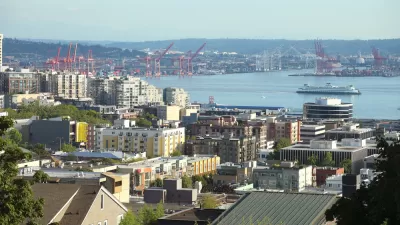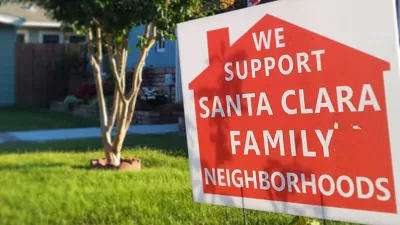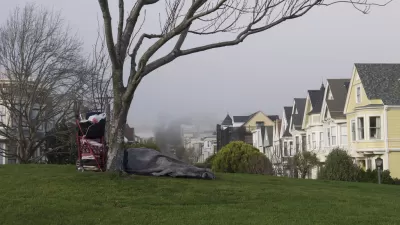With several years of contentious political debates, many surrounding homelessness, ravaging Seattle, a writer attempts to explain how the politics of city building got so heated.

Election campaigns are in full swing in Seattle, and Crosscut columnist Katie Wilson pauses to examine, "albeit speculatively," at the psychic forces setting the tone for politics in the city.
Wilson sets the infamous Ballard town hall of 2018—"the day Seattle Nice died"—as a defining moment for "enraged NIMBY" politics in the city, quickly connecting the movement to a core demographic (i.e., generational) experience:
Although I hope and believe this specimen is still rather rare, even in Ballard, it’s worth examining as a kind of archetype; NIMBY rage is the distillation of a set of feelings and opinions that also resonate, if less strongly, with a much broader swath of the population. This broader group is not all older, or all white, or all homeowners, but that’s their core demographic, and the archetypal enraged NIMBY is most definitely an older white homeowner. And this core demographic shares a core experience, which is in many respects a generational experience.
The core generational experience Wilson describes is one of a social contract, reached through numerous ill means, under threat by homelessness, soaring costs, and the looming environmental disaster of climate change. Millennials, more accustomed to the risks and threats of the era, have reacted differently than Baby Boomers to the changing times.
Wilson also calls out a few specifically loud voices in the ensuing debate, like People for Seattle and Moms for Seattle, the former led by former Mayor Tim Burgess.
FULL STORY: Adrift and afraid, Seattle's outraged NIMBY needs someone to blame

Planetizen Federal Action Tracker
A weekly monitor of how Trump’s orders and actions are impacting planners and planning in America.

Restaurant Patios Were a Pandemic Win — Why Were They so Hard to Keep?
Social distancing requirements and changes in travel patterns prompted cities to pilot new uses for street and sidewalk space. Then it got complicated.

Map: Where Senate Republicans Want to Sell Your Public Lands
For public land advocates, the Senate Republicans’ proposal to sell millions of acres of public land in the West is “the biggest fight of their careers.”

Maui's Vacation Rental Debate Turns Ugly
Verbal attacks, misinformation campaigns and fistfights plague a high-stakes debate to convert thousands of vacation rentals into long-term housing.

San Francisco Suspends Traffic Calming Amidst Record Deaths
Citing “a challenging fiscal landscape,” the city will cease the program on the heels of 42 traffic deaths, including 24 pedestrians.

California Homeless Arrests, Citations Spike After Ruling
An investigation reveals that anti-homeless actions increased up to 500% after Grants Pass v. Johnson — even in cities claiming no policy change.
Urban Design for Planners 1: Software Tools
This six-course series explores essential urban design concepts using open source software and equips planners with the tools they need to participate fully in the urban design process.
Planning for Universal Design
Learn the tools for implementing Universal Design in planning regulations.
Heyer Gruel & Associates PA
JM Goldson LLC
Custer County Colorado
City of Camden Redevelopment Agency
City of Astoria
Transportation Research & Education Center (TREC) at Portland State University
Camden Redevelopment Agency
City of Claremont
Municipality of Princeton (NJ)





























